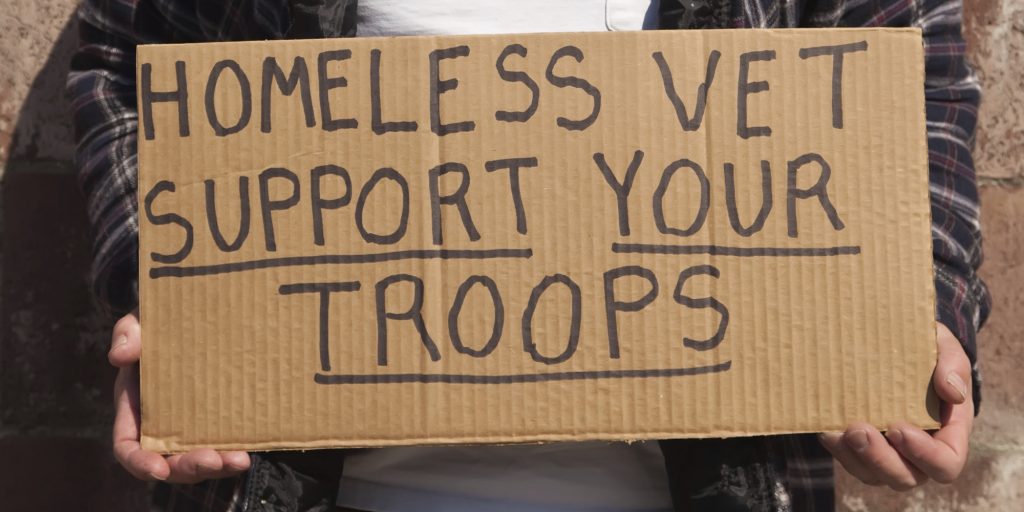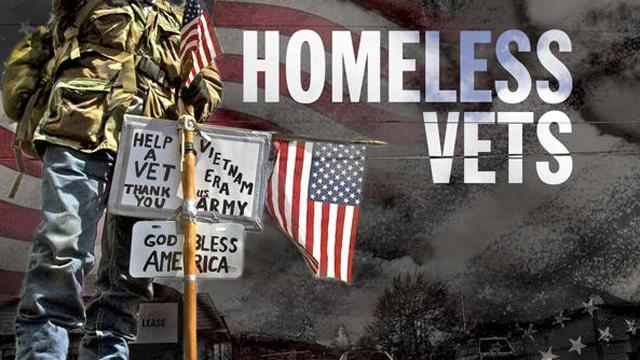The issue of homelessness with Veterans in the USA

The article published by Dr. Vitelli, “Why are so many veterans homeless?” , sparked an interest within me. Having known many family members and friends who had served in a war, I was surprised to find out that so many veterans struggle with homelessness. After reading up further on this topic, I realised another problem for veterans is PTSD. Post Traumatic Stress Disorder (PTSD) is an even greater issue many veterans face, and having written a book on PTSD (see below), I believed Dr. Vitelli was the right man for this topic

1) The USA has always come across to me, as a country that is proud of its military and those who serve in it, how come there so many veterans struggling after returning from combat?
Avoiding the political aspects of that question, veterans returning from a lengthy deployment often face enormous difficulty becoming reintegrated into a society that is very different from their military experience. Also, many returning veterans are dealing with issues such as posttraumatic stress, substance abuse, survivor guilt, and other mental health issues that take time and support to overcome.
2) You stated in your article that the Department of Veterans Affairs has spent many years to attempt to deal with homeless veterans. What has prevented them from finding a long-term solution?
For the past thirty years, we have been seeing a tremendous increase in people with mental health problems but no corresponding increase in services to address their needs. This is why we are seeing so many of them end up in the streets or in prisons since there is literally nowhere else for them to go. While the VA has attempted to address this shortfall in mental health services, at least for veterans, it often isn’t enough which leads to lengthy waiting lists and inadequate resources in many communities.
3) You also touch on mental health issues with regards to veterans, is there any help or access to help for veterans returning with possible mental health issues. Is this easily accessible?
I touched on a few of these resources in my blog post and the VA provides many more though finding the right kind of help can often be difficult. In many cases, returning veterans may find that there are no local resources available and may be forced to travel long distances as a result. Also, budget cuts has let to fewer places in many treatment programs.
4) Is this phenomenon a recent occurrence, or have veterans been struggling with homelessness for decades now? Also, when did this become so prevalent?
It isn’t recent. Even after World War I, there was an enormous upsurge in veterans who ended up in psychiatric hospitals because conditions such as post traumatic stress disorder (or combat fatigue as it was known then) were often seen as moral failures by soldiers who weren’t brave enough or strong enough to cope on their own. This is a surprisingly persistent attitude and many veterans may feel that not being able to “tough it out” is a sign of weakness on their parts.

5) What would you suggest could be a better solution to the issue of homelessness of veterans? Or a better solution to help veterans in general?
More funding and better awareness of the problems that veterans are facing, especially given the horrific conditions they encounter while deployed in countries such as Afghanistan and Iraq. We also need greater funding and support for mental health issues in general.
6) Do you think that some of Presidents Trump’s success was due to his promises of him helping the veterans more?
I would prefer not to touch on that subject.
7) Is there a possible reason for why statistics show women being more likely to be homeless compared to men?
It’s hard to say although women veterans are more likely to experience additional traumas that their male counterparts may not. This includes sexual harassment and assault while on deployment. This often leads to double victimization, both from their original abusers, as well as the military courts which are only beginning to recognize the full extent of this problem. Failing to get the right help and support can have tragic consequences.
______________________________________________________________________________________________________________________
For the book mentioned above, The Everything Guide To Overcoming PTSD: Simple, Effective Techniques for Healing and Recovery ,can be purchased via Amazon.
Dr. Romeo Vitelli is also an active blogger, having posted a wide variety of articles. You can find them here.
To follow Dr. Romeo Vitelli on social media, his Twitter account is found here.
Visit his website here.
______________________________________________________________________________________________________________________



Responses